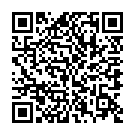|
|
|
| Module code: MST2.MCS |
|
|
4SU (4 hours per week) |
|
5 |
| Semester: 5 |
| Mandatory course: yes |
Language of instruction:
German |
Assessment:
Project work
[updated 06.11.2020]
|
MST2.MCS (P231-0060) Mechatronics and Sensor Technology, Bachelor, ASPO 01.10.2019
, semester 5, mandatory course
MST2.MCS (P231-0060) Mechatronics and Sensor Technology, Bachelor, ASPO 01.10.2020
, semester 5, mandatory course
|
60 class hours (= 45 clock hours) over a 15-week period.
The total student study time is 150 hours (equivalent to 5 ECTS credits).
There are therefore 105 hours available for class preparation and follow-up work and exam preparation.
|
Recommended prerequisites (modules):
MST2.MIC Microprocessor Technology
[updated 28.03.2019]
|
Recommended as prerequisite for:
MST2.SMS
[updated 05.05.2020]
|
Module coordinator:
Prof. Dr.-Ing. Jürgen Schäfer |
Lecturer:
Prof. Dr.-Ing. Jürgen Schäfer
[updated 28.03.2019]
|
Learning outcomes:
After successfully completing this course, students will be able to explain the structure and operation of a microcontroller including the associated peripherals (USART, SPI, I2C, RTC, GPIO, timer) using a modern 32-bit RISC architecture. They will be familiar with methods for hardware abstraction for the hardware used, they will be able to recognize possible problems regarding software testing and maintenance in the design phase and be able to qualitatively evaluate different implementation variants.
[updated 06.11.2020]
|
Module content:
1. Software development tools
- Programming environment µVison ARM-IDE
- Key support programs
-- TortoiseSVN
-- Doxygen
2. Important design patterns
3. Concurrency
- Problems
- Possible solutions
-- Compare and swap
-- Load link/Store conditional
4. Hardware abstraction layers (HAL)
5. Practical applications (exemplary)
- Abstract implementation of a communication interface based on an interface for receiving and sending
-- Individual data bytes of a (serial) interface and
-- data packets
- Use of callback methods in connection with interrupts (inversion of control)
- Implementation of a consumer-producer model for data processing in mechatronic systems
[updated 06.11.2020]
|
Recommended or required reading:
Jospeh Yiu: "The Definite Guide to the ARM Cortex-M3", Newnes
Bruce P. Douglass: "Design Patterns for Embeddd Systems in C", Newnes
Daniel W. Lewis: "Fundamentals of Embedded Software with the ARM Cortex-M3", Pearson International Ed.
Thomas Eißenlöffel: "Embedded-Software entwickeln", dpunkt.verlag
J. A. Langbridge: Professional Embedded ARM Development, John Wiley & Sons, 2014
ST: "RM0008 Reference Manual", www.st.com
ARM: "ARM Compiler toolchain, Compiler Reference", http://infocenter.arm.com/help
ARM: "ARM Compiler toolchain, Usiong the Compiler", http://infocenter.arm.com/help
[updated 06.11.2020]
|


